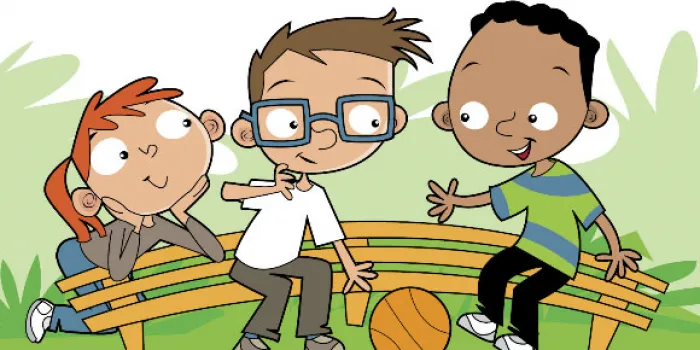If you’re confused about whether to tell a new friend about your bleeding disorder, don’t worry, you’re not alone. It’s normal to be concerned about what your friends may think. You might wonder: Will they treat me differently? Will they still like me? Will I feel like an oddball?
It’s your decision whether you say anything about having a bleeding disorder. If you discuss it with your friends, you may be surprised at how well they respond to the news. Once they understand why you have to do certain things to stay as healthy as you can, they can encourage and support you.
Talking to friends about your bleeding disorder may make you nervous, but there are some things you can do to make it easier.
Pick a good time
A friend might have questions for you, so telling him as he’s about to go up to bat at baseball is probably not the best moment. Try talking when you have more time, like during lunch or while hanging out after school or on the weekend.
Explain that your friends don’t have to worry about you
Upon learning that you have a bleeding disorder, friends may think that you’re sick and that you shouldn’t do activities you usually do together. You can tell them that you take special medicine to stay healthy, and even though you have to be careful, you’re the same friend you’ve always been.
Keep it simple
There’s no need to explain how you infuse or what happens if you get a bleed. In the beginning, you can simply tell your friends that your bleeding disorder means your blood acts differently than theirs and that you need shots to stop your body from bleeding too much.
Get help from your team
If you’re not sure what to say, you might try talking with your parents first. You can role-play with a sibling or a staff member at your hemophilia treatment center to see how the conversation might go. Other kids you know with bleeding disorders can provide good advice.
Be prepared for questions
Some friends may be curious. You might get questions like, “How did you get it?” and “Is it contagious?” They’ll be looking to you as the expert on your bleeding disorder, but you can decide how much you want to answer.
Don’t forget that nobody is perfect. You might sometimes feel that having a bleeding disorder makes you not “normal,” but everyone has something they have to deal with. Some kids need to wear glasses. Some kids need to wear hearing aids. Some kids have food allergies and can’t eat certain foods. You might find that when you tell your friends about your bleeding disorder, they share something you didn’t know about them.

